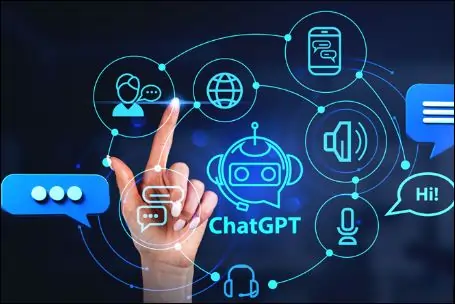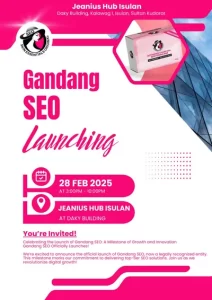Introduction: Kids Motivated by ChatGPT
In today’s world, technology plays a big role in how we learn and grow. One of the most exciting new tools is ChatGPT, an AI (artificial intelligence) that can talk to you like a person and help with homework or answering questions. For Filipino students, this tool could be a game changer, especially when it comes to making learning easier and more interesting.
Kids Motivated by ChatGPT, it gives them a quick answers and explaining things in a simple way, making it easier for them to understand lessons. Whether it’s for solving math problems, learning a new language, or understanding science concepts, ChatGPT can be a helpful companion for students.

It helps kids become more confident in their studies because they can get the information they need right away.
However, just like any tool, it’s important to use ChatGPT properly. Kids need guidance from parents and teachers to make sure they’re using it the right way. When used correctly, Kids Motivated by ChatGPT will inspire kids to be more curious and excited about learning, while helping them find answers on their own. This can help boost their motivation to study and succeed in school.
Table of Contents
The Power of AI in Education: ChatGPT’s Role
ChatGPT is an AI-powered language model designed to engage in human-like conversations, offering assistance with tasks ranging from answering questions to providing detailed explanations on complex subjects.
The tool has quickly gained popularity in educational settings as a resource for homework help and academic learning. According to Peter Kyle, using ChatGPT in an educational context could have significant benefits for students, especially when used in a supervised and responsible manner.

Kyle pointed out that just as calculators became a widely accepted educational tool, AI like ChatGPT is becoming increasingly important. “We need to make sure that kids and young people are learning how to use this technology and integrate it into their learning development,” Kyle said during an interview with the BBC.
This comparison highlights how new technologies, initially met with skepticism, eventually become valuable resources in academic settings.
Turbo-Charging Young Minds: ChatGPT’s Potential
One of the key points raised by Peter Kyle is that ChatGPT could “turbo-charge” the minds of children, especially those with exceptional talents. For gifted students, AI can offer personalized challenges and advanced learning materials that may not be readily available in traditional classrooms.
Kids Motivated by ChatGPT can help to push other students to reach their full potential by providing them with opportunities to engage with complex topics and receive tailored assistance.

Kyle also stressed the importance of teaching children how to integrate this technology into their educational journey. Instead of seeing ChatGPT as a shortcut or crutch, he views it as a tool to enhance learning and stimulate intellectual growth.
The UK Government’s AI Action Plan
The UK government is set to launch its AI Action Plan under the leadership of Prime Minister Keir Starmer. This initiative aims to harness the potential of AI across various sectors, including education, and has been met with optimism.
The government believes that by fully embracing AI technology, the country could see a £47 billion boost to its economy every year. Additionally, the private sector is expected to invest £14 billion in AI, which could create up to 13,000 new jobs.
While the details of the AI plan remain under wraps, it is clear that the Labour Party is taking a progressive approach to AI technology, focusing on its potential benefits while ensuring that safety and ethical considerations are addressed. Peter Kyle also mentioned the importance of a “course correction” in AI safety, signaling a shift away from the over-regulation that characterized previous administrations.
Challenges and Concerns in AI Integration
Despite the optimism surrounding AI’s role in education, there are concerns about its impact on learning structures in schools. The growing reliance on AI tools like ChatGPT raises questions about academic integrity and the potential for students to use these tools inappropriately.
For instance, some critics argue that students may use AI-generated answers without fully understanding the material, leading to a lack of critical thinking and problem-solving skills.
Furthermore, there are worries about the accessibility of AI tools. While many students in developed countries may have access to advanced AI like ChatGPT, those in less privileged communities may not. This gap in access could exacerbate existing inequalities in education.
Conclusion: A Transformative Shift in Education
The potential of the Kids Motivated by ChatGPT and other AI technologies to revolutionize education is undeniable. As Peter Kyle pointed out, when used properly, AI can help “turbo-charge” young minds, providing them with the resources and challenges they need to excel.
However, it is essential to approach this technology with caution, ensuring that it is integrated into the educational system in a way that promotes learning, creativity, and critical thinking.
The UK government’s AI Action Plan is an exciting step toward embracing these technologies, but it is crucial to balance innovation with responsibility. By doing so, we can ensure that AI becomes a valuable tool for enhancing education while maintaining the integrity of the learning process.
FAQs
1. Is ChatGPT safe for kids to use for homework?
Yes, ChatGPT can be safe for kids to use with proper supervision. It’s important for children to learn how to use the tool responsibly and in conjunction with their studies.
2. How can AI like ChatGPT help gifted students?
AI tools like ChatGPT can provide personalized learning experiences, offering more complex challenges and helping students expand their knowledge in ways traditional education may not.
3. Will AI tools like ChatGPT replace teachers?
No, AI tools are designed to complement traditional education, not replace teachers. They can provide additional resources and support to enhance the learning experience.
4. How will the UK government ensure the safety of AI in education?
The UK government plans to implement an AI Action Plan that includes measures for safety and ethical use. This will likely involve guidelines and regulations to ensure AI is used responsibly in schools.
Disclaimer
The views expressed in this article: UK Tech Minister – Kids Motivated by ChatGPT for 2025 reflect the opinions of the author based on current information and perspectives regarding the use of AI in education, particularly in the UK.
The potential benefits and challenges of AI tools like ChatGPT are still being explored globally, and the implementation of such technologies in the Philippines may differ. While the UK government has proposed specific strategies for AI integration, the educational landscape in the Philippines is unique, with different technological, cultural, and socio-economic considerations.
As AI continues to evolve, it is important for Filipino educators, parents, and policymakers to remain informed and consider how these technologies can be adapted for the local context. AI tools, when used responsibly, can enhance learning, but they should complement traditional teaching methods and not replace the critical role of human educators.
As with any emerging technology, it is vital to maintain a balance between innovation and ensuring that the ethical and safety standards are met, especially in a rapidly developing digital landscape like the Philippines.
TechWirings does not endorse or explicitly support any views or actions expressed in this content.










